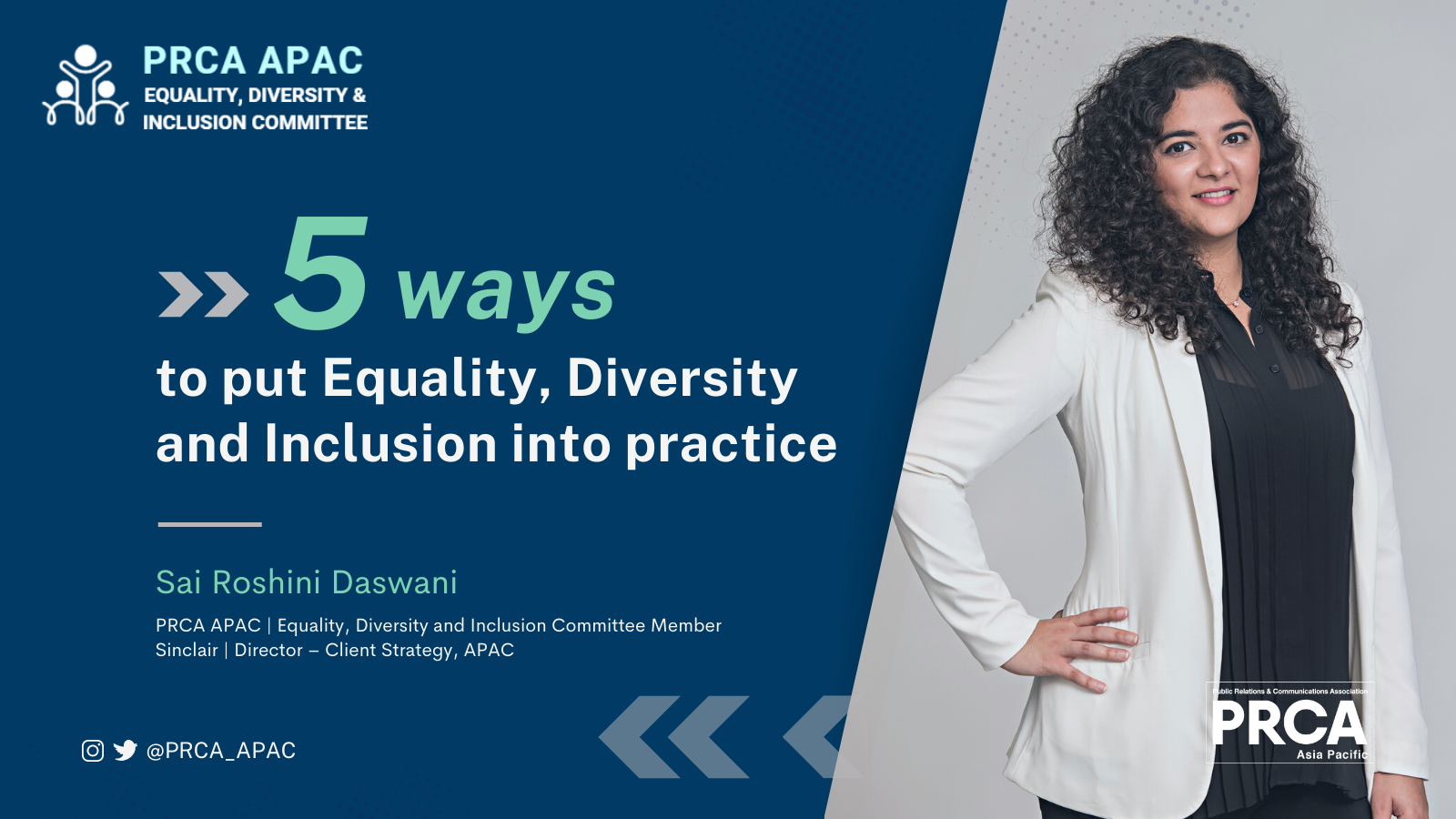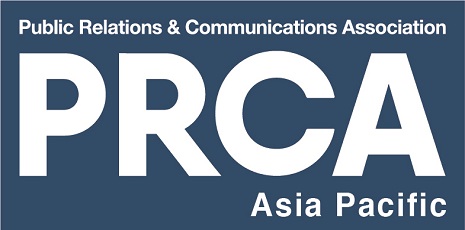
Author: Sai Roshini Daswani
PRCA APAC | Equality, Diversity and Inclusion Committee Member
Sinclair | Director – Client Strategy, APAC
Promoting equality, diversity and inclusion (EDI) in the workplace has been one of the most popular topics of the last year. But how do you even begin this conversation at work? Earlier this summer, the PRCA APAC EDI Committee hosted their first event, supported by Telum, where speakers discussed retention and recruitment strategies that empower the workforce, equal opportunities at work, including LGBTQ+ conversations and how to talk about the uncomfortable topics.
Speakers included Patrick Keenan – Founder, Litmus PR; Nikki Phinyapincha – Director of Media Relations and Communications, Asialife Media Thailand; Rebecca Isjwara – Reporter, S&P Global Market Intelligence; Tina Arcilla – Senior Manager, Diversity, Equity and Inclusion – Asia, Manulife. The panel was moderated by Susie Bates – SVP HR & Talent, Asia Pacific, IPG DXTRA, vice-chair of PRCA APAC EDI Committee.
Here are some of the key recommendations:
- Define EDI for your company
There is a moral component and a practical component when it comes to practicing EDI in the workplace. Before delving into any policies, strategies or communications, companies should define what these terms mean as each of the three terms can mean something different while taking into consideration the local, cultural and socio-economic situation. This ensures no room for stakeholders to question or misunderstand the company’s authenticity. This also allows for the trickle-down effect from management to employees, with EDI being lived and demonstrated on a daily basis and fostering of psychological safety regardless of education, country and language.
- Develop clear, consistent and communicated policies
Having the conversation about EDI in the workplace is a great first step. Ensuring employees feel safe to work in the office means not just talking about it, but actually having policies in place that are communicated well to the team. Concepts and practices need to be institutionalise so that it’s not a personal standard, but rather a company standard. The full team should be aware of company values and what their organization stands for, for example, what modern family means, how to use inclusive language, or even set up calls for people across countries. Companies that walk the talk don’t exist in isolation. They become better businesses because they are able to address questions head-on, and instead look at being more innovation-driven, forward looking and strategic.
- If you don’t know, ask
Having a conversation head-on, and admitting you need advice and support is a great way to start an uncomfortable conversation. If you don’t know how to pronounce someone’s name, ask. If you don’t know which pronoun to use when introducing someone, ask. If you are not sure how to support employees better, ask. There is no shame in asking a question. It’s much better than being ignorant or disrespectful of the people around you.
- Listen to conversations around the office
EDI is core to business strategy. It can be a reason why talent chooses to stay or leave a company. The biggest challenge today is employee and talent retention, especially after ‘The Great Resignation during COVID-19. You cannot put barriers or restrictions on talent if you are looking for a multitude of skillsets. In addition, companies that assess cultural situations and analyse trends while also understanding purpose, values and people are able to challenge themselves to do more and better. They are also able to support employees with expressing themselves and being ambassadors for causes that they believe in. This is what it means to truly listen.
- Continue learning and adapting
It is an understatement to say that the lexicon we use today is different to previous and next generations. The first step is recognising the current situation before coming up with a means of adapting to what the workplace needs today. If training, more exposure or a mindset shift is necessary by implementing a code of conduct, these can be introduced to a formal working environment, while ensuring to consider mental health risks or healthy communications.
It’s time to figure out how to make a conversation that makes you uncomfortable comfortable. There’s nothing to lose, and so much more to gain.
Following the success of this event, the PRCA APAC Equality, Diversity and Inclusion Committee would like to announce the launch of a new Fireside Chat Series ‘Diversity Matters’. The first episode will touch on Breaking Barriers by normalising conversations around diversity in and out of the workplace. Stay tuned for the first episode in Q4 2022.
